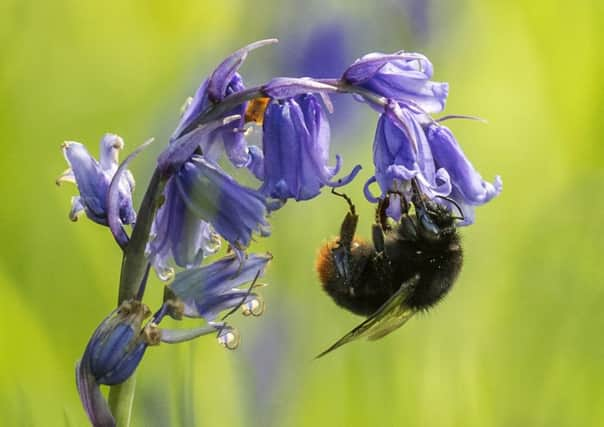Leader comment: Food crisis shows need for environmental focus


It may seem trite, therefore, to pay too much concern to issues disparagingly referred to as first world problems, such as the chronic vegetable shortage in British supermarkets and the declining numbers of bluebells, one of the country’s most iconic woodland plants.
Such matters may make for animated dinner party discussions, but in the overall scheme of things, are they important? The fact is that although they may be deemed comparatively less significant, they remain crucial issues in which we should take a keen interest.
Advertisement
Hide AdAdvertisement
Hide AdAt first sight, they are two unrelated stories; look closer, however, and it becomes clear they are intertwined, bound up with one of the gravest dangers we face today.
Both shortages offer a striking insight into how food production and the natural world are being adversely affected by extreme weather, a development that is being driven by mankind’s abuse of the environment.
The scale of the potential impacts of climate change and global warming are uncertain, even incalculable, but potentially ruinous. It could create shortages of fresh water and herald sweeping floods, heatwaves, storms and droughts, events that would have a devasting impact on human populations.
But they would also prove devastating for food production. The current vegetable shortage is perhaps the tip of the iceberg.
During the winter months, the Murcia region in south-east Spain supplies an astonishing 80 per cent of Europe’s fresh produce. But after suffering its heaviest rainfall in three decades, only 30 per cent of its growing fields are useable.
This has coincided with a cold snap in Italy, which normally exports vegetables at this time of the year but is now having to import them. The effects of these shortages are being keenly felt on these shores – Britain, after all, imports an estimated 50 per cent of its vegetables and 90 per cent of its fruit.
It will require a concerted international effort to lessen the impact of such trends, an already considerable task before you take into account the challenge represented by Mr Trump.
An avowed sceptic on climate change who believes it is a hoax invented by the Chinese, the billionaire has sought to limit environmental regulations in his first weeks in office. This aggressive pursuit of deregulation will be to the detriment of the US, but it will also do little to encourage other hesitant actors on the world stage to consider the environmental impact of their actions.
Advertisement
Hide AdAdvertisement
Hide AdThat should not bring about despair or worse still, complacency. While the US slips backwards on climate issues, the rest of us should realise that although economic issues dominate discussion, we must not lose focus on the environment. It is worth reflecting on the next time you see an empty shelf in the supermarket.